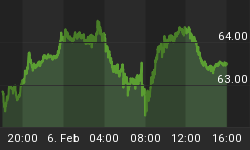Since the bailouts last fall, lawmakers have been behaving as quasi-owners of the bailed-out banks and businesses, leading to calls for increased regulation of executive compensation and other wasteful expenditures. We have heard much about bonuses and executive pay packages that sound more like lottery winnings than an honest salary.
Many lawmakers voted in favor of these unconstitutional bailouts, believing that these corporations were too big to fail, and allowing them to go under would precipitate widespread economic disaster. This second wave of citizen outrage at the bailouts has left these lawmakers with a bit of egg on their face, and once again, they feel the need to "do something" to "fix" it. Shouldn't there be a regulatory structure in place governing executive compensation? Politically, it seems quite feasible. People are outraged that the system has once again gutted the many to make a few at the top fantastically wealthy. But they are incorrectly demonizing the free market.
What we need to realize is that there WAS a regulatory structure in place that was attempting to stop bad management, including overpaying executives. That regulatory structure is the free market, and when poor management brought these companies to the point of bankruptcy, Congress circumvented the wisdom of the free market, and inserted its own judgment at our expense. And now because of that intervention, we will burdened with massive new regulations. We can be certain this effort will fail.
The free market is a naturally occurring phenomenon that can't be eliminated by governments, not even totalitarian ones like the former Soviet Union. It can be regulated, over-taxed and manipulated until it is driven underground. Lately it has been wrongly accused of doing so many things it just doesn't do, that are really the fault of crony corporatism and convoluted government policies that brought on the crisis. Too many people equate the free market with big business doing whatever it wants, but that is not the free market. Unconstitutional taxpayer funded bailouts are what allow giant corporations to run roughshod over the economy. The free market is what puts them out of business when they misbehave.
The free market is you and your neighbors working hard to produce what you produce, and exchanging goods and services voluntarily, in mutually agreeable arrangements. The free market is about respecting property rights and contracts. It is not about building up oligarchs and monopolies and confiscatory tax theft - these are creatures of government.
We must watch out when government comes up with interventionist solutions to interventionist problems. The root of our problems lie in interventionism. Trusting the free market is the solution.















